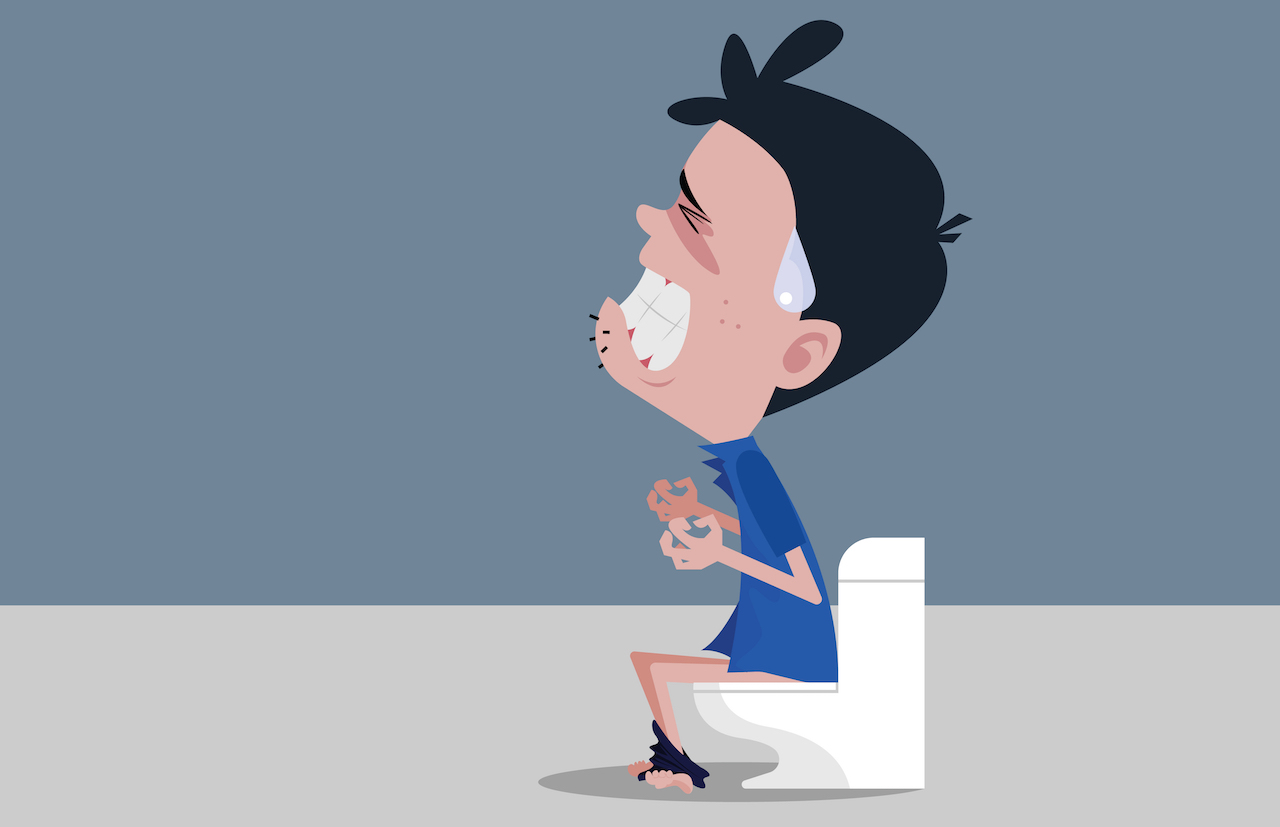Suddenly can’t fit into your favourite jeans? Blame it on your bloated belly!
Constipation and a bloated stomach go hand-in-hand. Constipation is the uncomfortable process when you find it difficult to pass stools; or it happens less often than it should. This varies from person to person to person, but usually, fewer than three bowel movements a week leads to constipation.
If you have very hard or small stools, no appetite, a feeling that you can’t relieve yourself and bloating, you may be constipated.
Bloating can be a symptom of constipation but it can also be caused by built-up gas or water retention (when your body collects water). After you eat or drink, liquids take up space in your tummy and intestines, and this may cause it to expand. Bloating and constipation can ease up on its own in time, but if your belly is too swollen to even button your jeans, it might be time to check your diet.
The culprits
Broccoli, cabbage and kale
These nutritious green vegetables all contain raffinose, a sugar that stays undigested until your gut’s bacteria ferments. During fermentation, you produce gas, which makes you bloat. It’s still important to include these healthy greens in your diet though, so keep your portions in check and steam before eating to soften the fibre, making them easier to digest.
Dairy
If it only takes a few slices of cheese or a little milk to make you constipated, gassy or bloated, then you may be lactose-intolerant. This means your body can’t break down lactose (a sugar found in dairy products). This causes gas to form. Dairy is also high-fat and low-fibre which causes constipation. If dairy doesn’t agree with you, try non-dairy options like soy milk products and look for lactose-free labels.
Salty foods
If something tastes bland, your first reaction would probably be to reach for the salt; another bloat red flag. Eating foods high in salt triggers water retention which may swell your tummy. Salt mainly sneaks its way into your diet with processed or packaged foods, including soups and bread. Processed foods with high amounts of salt may also cause your bowels to become sluggish. Cut down on salt and drink loads of water to help flush out the sodium.
Apples
This crunchy fruit makes a good snack because it’s packed with fibre and nutrients, but it can cause your belly to balloon. Apples contain fructose and sorbitol; sugars in fruits which cause your tummy to puff up. Include apples in your diet as they add protein and Vitamin C, but eat it in moderation and separately from meals. Pears and peaches may also cause you to bloat.
Eat the bloat away
Cucumber
This humble green vegetable isn’t just handy for under-eye puffiness. It can also debloat your belly. Cucumbers contain quercetin, an antioxidant that helps reduce swelling. Slice it up to eat as a snack or add it to a glass of water for a refreshing drink.
Banana
Potassium-rich foods like bananas, kiwis and oranges help prevent water retention which causes bloating. They do so by regulating the salt levels in your body. Bananas also have soluble fibre which can relieve or prevent constipation. Add a few slices to your cereal or yoghurt in the morning for a fibre boost.
Yoghurt and other probiotics
Probiotics like yoghurt, chia seeds and cottage cheese are packed with good bacteria which help with digestion. As it helps regulate the health of your digestive tract, it also keeps your tummy from expanding. Sweeten plain options with jam, berries, granola or a little honey.
Top tips
- Dehydration can lead to constipation, so drinking more water will help relieve constipation.
- Sip some green tea if you feel backed up. Caffeine found in coffee stimulates your digestive system.
- Prunes will help; they contain fibre and a natural laxative called sorbitol.
References:
- https://www.healthline.com/health/digestive-health/constipation-and-fatigue#1
- https://www.livestrong.com/article/536116-high-sodium-levels-constipation/
- https://www.everydayhealth.com/constipation-pictures/foods-to-avoid-for-constipation-relief.aspx#02
- http://www.health.com/health/gallery/0,,20802995,00.html
- https://www.medicalnewstoday.com/articles/318694.php

